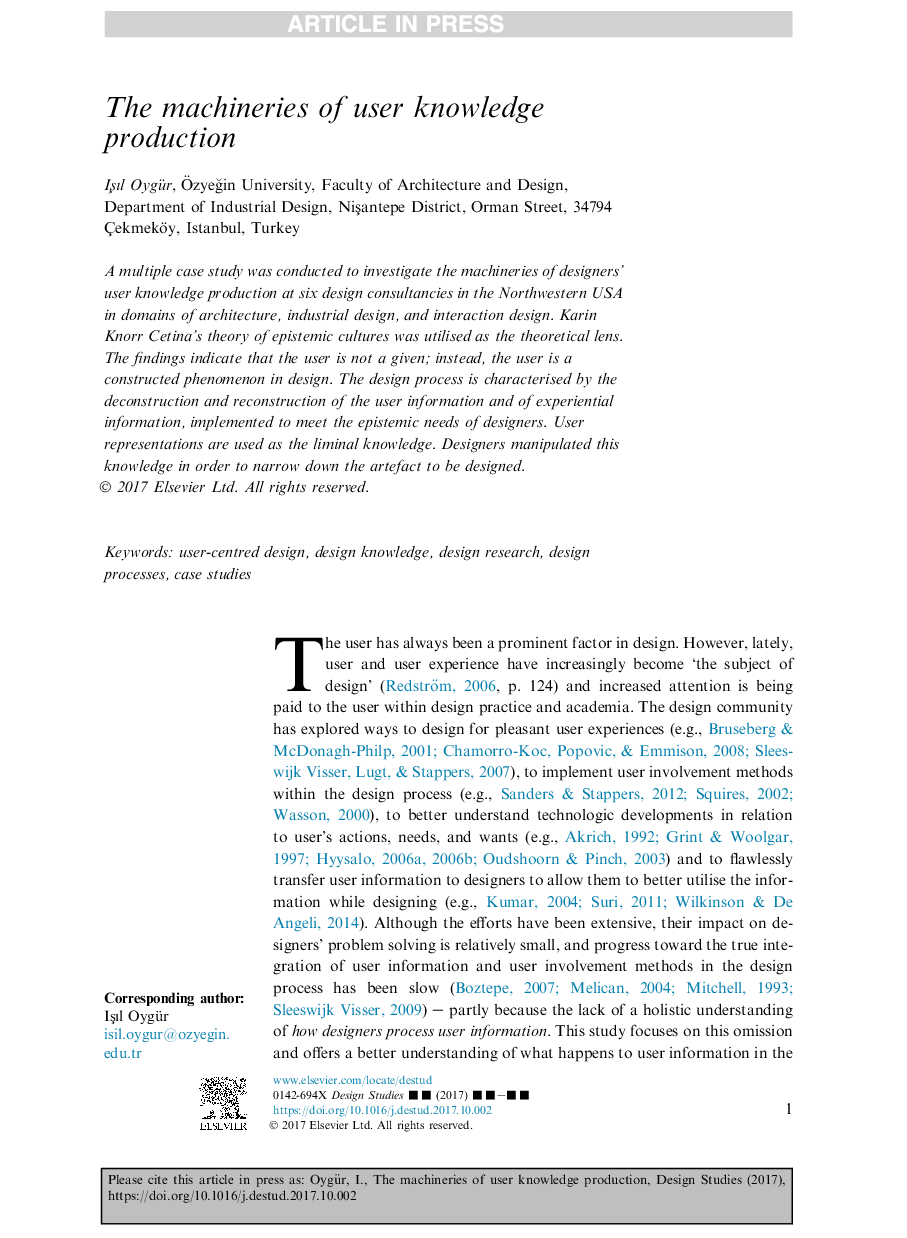| Article ID | Journal | Published Year | Pages | File Type |
|---|---|---|---|---|
| 6726569 | Design Studies | 2018 | 27 Pages |
Abstract
A multiple case study was conducted to investigate the machineries of designers' user knowledge production at six design consultancies in the Northwestern USA in domains of architecture, industrial design, and interaction design. Karin Knorr Cetina's theory of epistemic cultures was utilised as the theoretical lens. The findings indicate that the user is not a given; instead, the user is a constructed phenomenon in design. The design process is characterised by the deconstruction and reconstruction of the user information and of experiential information, implemented to meet the epistemic needs of designers. User representations are used as the liminal knowledge. Designers manipulated this knowledge in order to narrow down the artefact to be designed.
Related Topics
Physical Sciences and Engineering
Computer Science
Computer Graphics and Computer-Aided Design
Authors
IÅıl Oygür,
